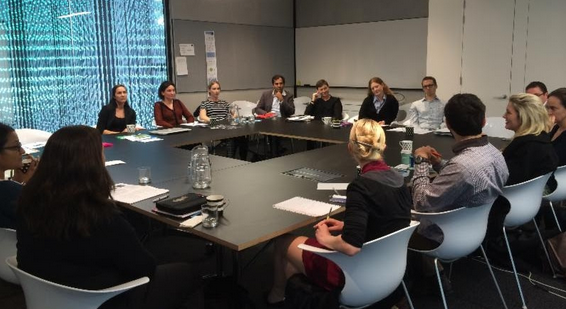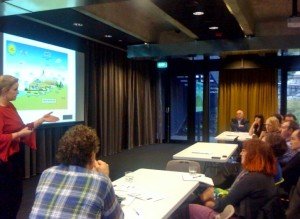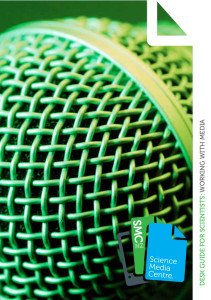Resources for journalists and Scientists
In addition to its day-to-day activities, The Science Media Centre has undertaken an number of initiatives to help journalists and scientists engage effectively to increase the quality of science coverage in New Zealand.
The Desk Guide for Scientists: Working With Media
Helping journalists do a better job of covering science is at the core of what we do. But we have found that the key to quality media reporting on science is the ability of scientists to communicate effectively.
Most journalists have a simple aim when they interview a scientist – to get a clear explanation of new research or informed commentary on a breaking news story. The better you as a scientist can meet this need, the better the results will be when the story is published
The Desk Guide for Scientists: Working With Media covers just about everything you need to know about working with the media. From preparing your messages and working with your comms team, to engaging in social media and blogging, the Desk Guide lays out what our experience shows works.
Keep your Desk Guide handy. We hope it will be useful the next time your science is in the media spotlight.
Desk Guide for Covering Science
The second edition of the Desk Guide for Covering Science is designed with busy journalists in mind. It’s meant not only for reporters on the science, environment and health rounds, but for general reporters who want to get the science right.
It covers the basics of everything from the all-important peer review process in scientific research, through to the tricky issue of trying to write a “balanced” science story when the weight of scientific evidence may be overwhelmingly on one side.
You’ll find a ten-point checklist for approaching science-related subjects and tips on how to foster scientists as contacts. The updated centrespread infographic lays out the New Zealand science system, introducing you quickly to the diverse and varied areas of research underway in the country.
Throughout, you’ll see pointers to where the SMC can help you out with research, independent experts and valuable resources.

 The Science Media Centre also runs ‘Science Media SAVVY‘ media and communications skills workshops for scientists, backed up by a suite of online tools to assist scientists preparing for media encounters.
The Science Media Centre also runs ‘Science Media SAVVY‘ media and communications skills workshops for scientists, backed up by a suite of online tools to assist scientists preparing for media encounters.
Designed specifically to orient scientists and researchers to the realities of a rapidly changing media environment, these workshops offer practical skills and experience that will help participants work more effectively with media.
Over two days, participants gain confidence and learn strategies enabling them to successfully navigate a range of media encounters. The individualised media training and feedback provided can accommodate a range of experience levels, from intensive introduction, to master class for seasoned science communicators.
The Science Media Centre also offers shorter media courses for scientists tailored to specific audiences and groups.
Find out more about Science Media SAVVY.
 SMC Expert encounters
SMC Expert encounters
The SMC hosts regular events in Auckland and Wellington to help engage media with science and support more in-depth coverage of science-related topics. These free-ranging Q&A sessions invite journalists to meet dynamic local experts and visiting international scientists, discussing a range of topics from climate modeling and epigenetics to antibiotic resistance. Expert encounters are organised in partnership with supporters, including the MacDiarmid Institute and the Royal Society of NZ.
Interested journalists can contact the SMC to find out more about what is coming up.
